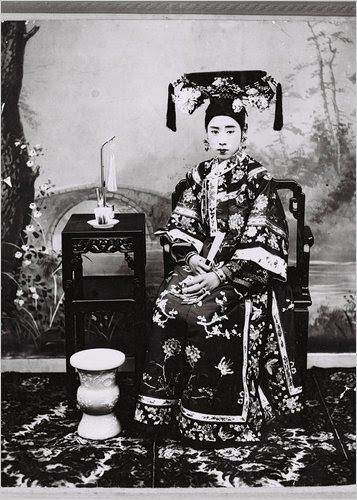Xu Yin, Associate Professor of Civil Engineering from Tsinghua University, was fortunate to escape China after two years of labor camps. His crime: Practicing Falun Gong.
During the two-year sentence in Tuanhe Labor Camp, Beijing, Xu suffered severe physical and psychological torment. After his release in March of this year, Xu continued to be monitored closely. Seeking freedom of belief, Xu left China with his family and arrived in Chicago on August 27.
I interviewed Xu in his small temporary apartment, and found it hard to imagine the terror he had just been through—not from his gentle smile and equanimity of his voice. Perhaps his pepper-white hair that is unfitting for a 47 year old, who is supposed to be at the peak of his physical and professional life.
Xu was arrested from his home on March 13, 2006 from his home. Without any search warrant, several police broke into his home and started to search. They arrested and Xu and his wife, and took away all his Falun Gong books. Later Xu’s wife was released but Xu was taken to a detention center.
“Detention centers were designed for a short stay, but I was put there for half a year, living under extremely unbearable conditions.” Xu described a room less than 18 square meters, with a wooden board two meters by five meters—the bed for 30 some detainees! In disbelief, I asked how could a small board fit that many people, Xu gestured how each had to lie on the side, with head facing the next person’s feet, everyone squeezing together tightly. “If anyone got up at night for bathroom, he would have no space to squeeze in, and would have to stand through the rest of the night.” In the summer time, the thin sheet under them were soaked with sweat every night, folded up in the morning without any drying and used again the next night. “The pungent smell was indescribable.”
Xu was then sentenced without a trial, and moved to Tuanhe Labor Camp. There waiting for him was even more trying. Refusing to denounce Falun Gong, Xu was immediately put into solitary confinement—except that he was not alone. He was forced to sit alone on a stool facing the wall, each day in the same position for 18-19 hours, with six people monitoring him on a rotational basis on six-hour shifts. This lasted for eight months!
He showed me how he was forced to sit: The stool was very low, about 9 inches high, with a small hard surface. He only had part of his bottom on the stool, and his feet were forced close to the stool, “Sitting like this for just one hour would become intolerable; my butt and body became extremely painful. But if I shifted the position a little, a monitor would shout at me or kick me.”
The monitors were other prisoners ordered by the police—they are called Baojia, who are encouraged by the police to abuse Falun Gong practitioners. “I tried to talk to them, telling them what they were doing was wrong.” These inmates were all criminal offenders, and many grew up with hard conditions and without moral educations. “One Baojia was doing his time for stealing, and he was looked down upon all his life. But I talked to him about righteous living, and listened to his troubles. He was grateful as no one had listened to him and spoken with him with kindness before.” This Baojia allowed Xu to shifty sitting positions when the police was not there.
The few times Xu was allowed to leave the confinement was when the police wanted him for brainwashing. But Xu stayed firm. After seeing physical and psychological torments had not waivered Xu’s belief in Falun Gong, the police brought Xu out of confinement and sent him to labor with other inmates.
“The work we did was to make gift boxes for the Beijing Olympics; we were told to maintain good quality because of the Olympics.”
It is well known that labor camps in China exercise long hours, sometimes 15 or 16 daily, of slave labor. When I asked Xu if the labor was hard, he said not compared with the humiliation. “This was how they humiliated us intentionally: During meals, two persons were given one bowl and spoon, and we were to sit face to face across the table, eating alternately from the same bowl and using the same spoon. There was no right to be said.”
A more vicious method of tormenting was bathroom control. “Have you heard of the 1-2-3 method for bathroom release?” I said no. Xu explained: They shouted 1-release, 2-wipe, and 3-get up; each would last a second or two, and that was all. “Some inmates developed constipation and could not release for days, with great pain. Xu shook his head, “they would think of this way to treat us.” Various forms of abuse were a common place in the labor camp.
“How did come through such a cruelty?” I asked. “My strong will,” Xu answered, “My belief in Falun Gong supported me through all this.” He refers to Falun Gong’s teaching of Truthfulness, Compassion, and Forbearance. He recounted the terror in China’s labor camp with a unique sense of peacefulness.
How could it be that Xu Yi, a well known professor from China’s first rate university, be treated as a criminal, or worse than a criminal, just for practicing Falun Gong? In comparison with some other Falun Gong practitioners from Tsinghua University, Xu’s experience was perhaps “not as bad.”
Xu had known a number of faculty members and students arrested for practicing Falun Gong. “Among the practitioners I know [from Tsinghua University] eight people are still in prison now, the longest being a 13-year sentence.”
Xu showed sadness when mentioning Zhang Lianjun, a student from his department of Civil Engineering. Zhang was arrested in 2003, and was so severely tortured that he fell into a vegetative state. Xu described when Zhang was first seen by family members after imprisonment: He was chained onto the bed in which he laid, with no expressions on his face and unable to speak. Even in this state, Zhang was not allowed on a medical bail, but was transferred from Beijing to a prison in Chifeng, Zhang’s hometown.
Tsinghua University was among the heaviest hit in China’s high education system in the suppression of Falun Gong. Xu said his university was targeted with special instructions from Jiang Zemin, the former head of the Chinese Communist Party who initiated the persecution in 1999.
Xu started to practice Falun Gong in 1995, through which he gained not only a healthy body but also a peaceful and loving mind. “Falun Gong teaches me to be a good person in all circumstances. I put in great effort in my work,” a work he has loved with heart. For consecutive years Xu was rated among the top 5% in teaching among over 2,000 faculty members at Tsinghua University, known as China’s MIT. When asked why he excelled in teaching, he said, “I treat students like my own children and I teach them with a loving heart. That’s what Falun Gong taught me.”
Xu won numerous teaching and research awards, and is well respected by his colleagues and loved by his students. Perhaps that was why his department tried to protect him when possible, and he was allowed to work in the initial years after Falun Gong was persecuted in July of 1999.
But not peacefully. “They met with me often. First it was university’s 610 office [set up in 1999 with the mandate of persecuting Falun Gong] and then the Party secretary in my department. Each time they asked me to explain my attitude toward Falun Gong. These meetings were more frequent during ‘sensitive” times when the Party was having major events.” Xu said each time he tried to explain Falun Gong is good and righteous. “They saw that I was a good person, and my colleagues and students all like me, so they did not do anything to me.”
Xu’s arrest in 2006 was a precursor to the roundup of Falun Gong practitioners in preparation for the Beijing Olympics in 2008.



